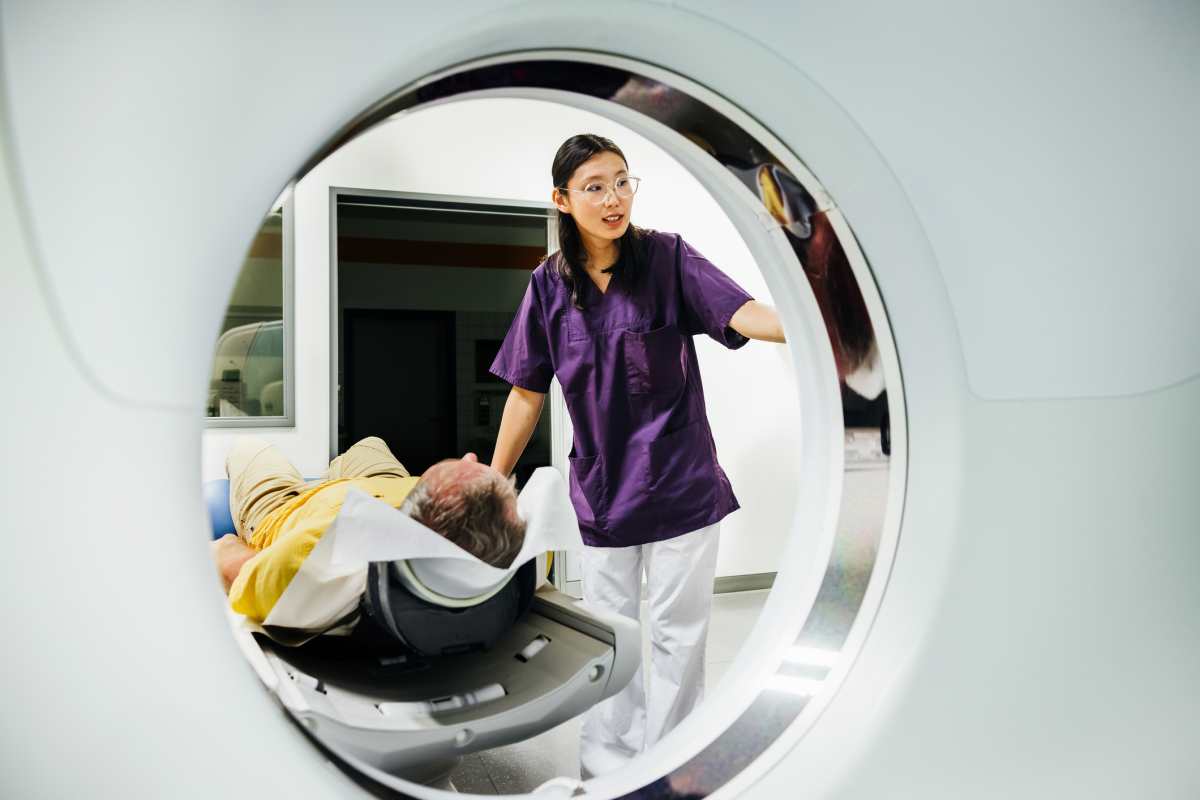He visited the doctor for toe pain—months later, a scan revealed a mind-boggling discovery that saved his life

Many medical practitioners might advise people to pay attention to the signs and symptoms in their bodies. The attention can turn out to be life-saving in many instances. A man, Richard Bernstein, found himself in such a situation after he started experiencing pain in his toe. He went to the doctor to get it addressed, but couldn't get a proper answer. Eventually, the pain spread and he experienced swelling in his leg a few years later. Then the doctors found the cause that might have been life-threatening for the man, per the New York Post.

Richard started experiencing pain in his right toe around 2017 and immediately sought medical attention. "I went to my podiatrist. I thought I had fractured the toe, but he couldn't find anything wrong with it." Only a couple of years later, his ankle started hurting, too. The doctor suggested physical therapy, but Richard didn't experience any relief from it. It had started getting slightly hard for him to walk. After three years, the man experienced swelling in his right leg and consulted a general practitioner. The doctor suggested an abdominal scan that revealed a massive tumor on the man's kidney. It was cancerous. The tumor and tumor thrombus had filled up the renal vein and the vena cava, responsible for returning deoxygenated blood to the heart.

Dr. Michael Grasso, the Director of Urology at Phelps Hospital, admitted Richard to Lenox Hospital and teamed up with a cardiothoracic surgeon and vascular surgeon to operate on the man and remove his tumor. The man's liver was failing and two of his main coronary arteries had lost 99 percent of their function. The doctors had given Richard only four days to live after the discovery. "He was walking a thin, tightrope. You have two situations that are life-ending in a very short period of time, happening simultaneously," Dr. Grasso explained. The team of doctors got ready to perform a complex 12-hour procedure that would involve removing the tumor and performing a bypass at the same time.

The doctors were able to clear up the man's vena cava with a complex medical procedure and remove the tumor at the same time. The tumor and tumor thrombus were one foot long and weighed around 2.5 pounds. According to Mayo Clinic, kidney cancer might not present symptoms in the early stages. But sometimes, it can manifest as blood in urine, loss of appetite, fatigue, weight loss, or pain in the back that doesn't get better. Richard shared that not worrying too much helped him get through the surgery. "I can't say I fully recognized the complexity when I went in, even though Grasso told me it was complex. There was not much I could do about it and that attitude got me through," Richard pointed out.

The pain in the leg was possibly caused by the blocked vein, according to Dr. Grasso. "The vena cava was being obstructed. There was pressure in his lower extremities." The man was sedated for three days after the surgery and left the hospital for rehab at Phelps Hospital after a week. The man could walk properly. He had lost around 30 pounds at that time and was gaining it back as he was recovering. The man was grateful that he was alive and well. "If my whole leg hadn't swollen up, I would have dropped dead." The man didn't have to go through any additional treatments after the surgery. "There was no serious pain at all. My advice is, if something is wrong and they can’t find it, don’t give up looking. Trust your feelings about your own body."
More on Amplify
Woman with stage four colon cancer reveals 5 warning signs she ignored in the beginning
This article originally appeared 2 months ago.
